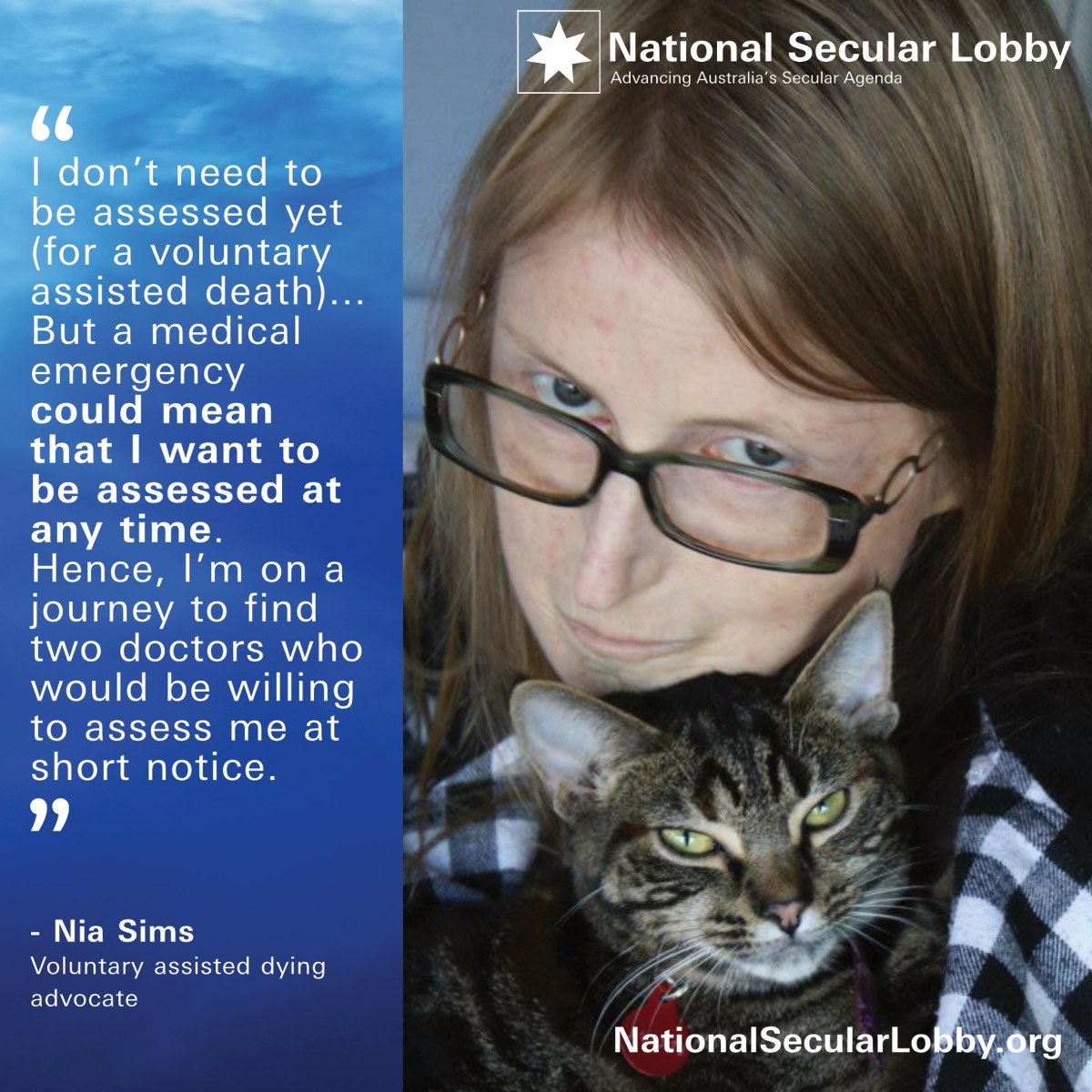Nia Sims: Access to VAD under faith-based healthcare
When voluntary assisted dying (VAD) laws came into force in Victoria, Nia Sims thought they would give her peace of mind in knowing that the end-of-life option could be available if her health worsened.
But, as a patient of a faith-based institution, Nia now worries whether she will be able to access an assessment for VAD, if the need arises. The 45-year-old has a progressive autoimmune disease called Scleroderma, which is slowly damaging her organs.
“I knew that faith-based hospitals would not provide VAD. But I had not thought through all of the potential scenarios where I might want to access assessment,” she says.
“I have realised that, by the time I am eligible, according to the criteria of the scheme, I am likely to be an inpatient in hospital and be too unwell to be moved to the community where I could be assessed. ...I won’t have the peace of mind that I seek until I am cared for via a secular, rather than a religious-managed, hospital.”
Nia is encouraging the parliaments of Western Australia and Queensland to grant their citizens access to VAD. But, with religious health organisations continuing to oppose VAD, she is urging Australians who may wish to access VAD to choose their care providers carefully.
“Access to VAD assessment allows me to connect in a more meaningful and caring way with my own fragile, crumbling body,” she says.
“If I’m in intolerable suffering which cannot be relieved, if I am assessed as eligible and have life-ending medicine nearby, then I will have the comfort of control and choice over when I am ready to end my suffering.”
You can follow Nia as she writes about her journey on her blog and on Twitter at @niarebeccasims.


